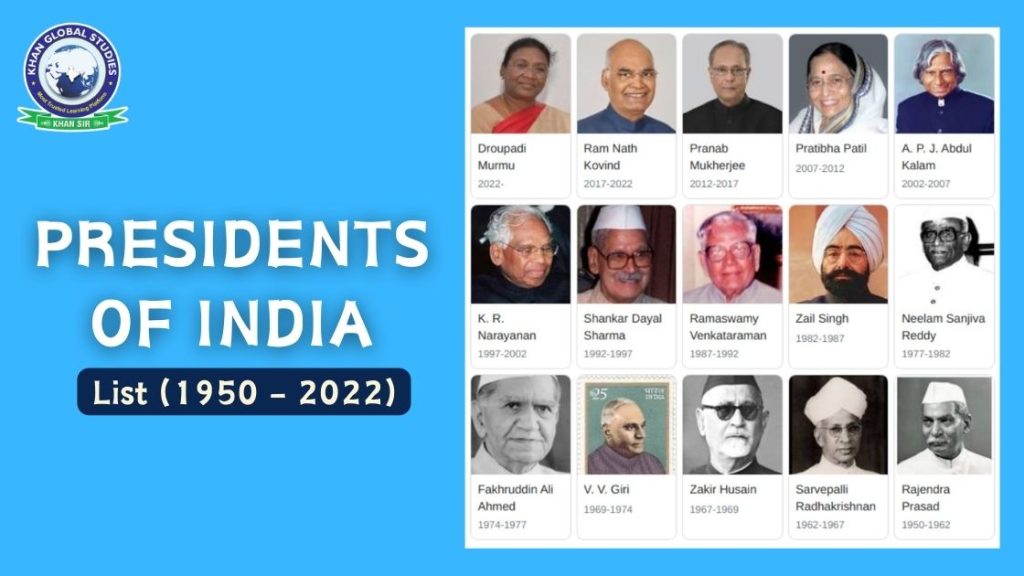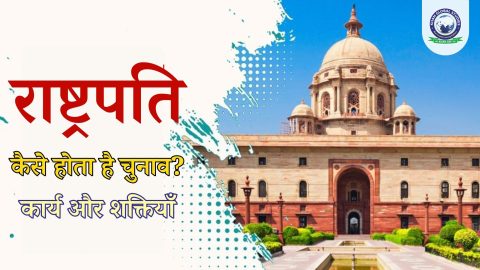The President is the head of the executive, legislature and judiciary of India and is also the commander-in-chief of the Indian Armed Forces. Article 56, Part V of the Constitution of India states that the President may hold office for a term of 5 years.
Who is the President?
Under the Constitution of India, there will always be a President of India. He holds the highest elected post in the country and is elected per the provisions of the Presidential and Vice-Presidential Elections Act, of 1952. The President is elected by an electoral college consisting of elected members and unelected members of both houses of the Parliament. Elected members of the Legislative Assemblies of all the States and the National Capital Territory of Delhi and the Union Territory of Puducherry.
How is the president elected?
The election of the President of India is conducted through a special process. The President is not elected directly by the people but through an Electoral College. This Electoral College consists of the elected members of both houses of Parliament (Lok Sabha and Rajya Sabha) and the elected members of the Legislative Assemblies of all states. Each MLA and MP has a specific vote value, which is determined based on the population of their respective states. To qualify as a Presidential candidate, the individual must be an Indian citizen, at least 35 years of age, and eligible to be a member of either the Lok Sabha or the Rajya Sabha. The election is conducted through a secret ballot, and the winner is the candidate who secures the majority of the total votes.
Functions and Powers of the President
The President of India has to perform certain duties for the welfare of the nation. The President has many responsibilities to ensure security. Along with knowing the tenure of the President, you should also understand the functions and powers of the President, which are as follows:
- Legislative
- Executive or Appointment Powers
- Judicial Powers
- Powers to Forgive
- Financial Powers
- Diplomatic Powers
- Military Powers
- Emergency Powers.
What is the minimum qualification to become President?
Along with knowing the tenure of the President, it is also important to know about the minimum qualifications to become the President, which are as follows:
- The President must be an Indian citizen.
- The President must be above 35 years of age.
- The President should be eligible for election as a member of the Lok Sabha.
- The President of India should not hold any office of profit under the State Government, the Union or other local authorities.
List of Presidents of India
Following is the list of Presidents of India since India’s independence:
| Name of President | Tenure |
| Rajendra Prasad | 1950 to 1962 |
| Dr. Sarvepalli Radhakrishnan | 1962 to 1967 |
| Zakir Husain | 1967 to 1969 |
| V.V. Giri (Caretaker) | 1969 to 1969 |
| Mohammad Hidayatullah (Caretaker) | 1969 to 1969 |
| V.V. Giri | 1969 to 1974 |
| Fakhruddin Ali Ahmed | 1974 to 1977 |
| Basappa Danappa Jatti (Caretaker) | 1977 to 1977 |
| Neelam Sanjiva Reddy | 1977 to 1982 |
| Giani Zail Singh | 1982 to 1987 |
| Ramaswamy Venkataraman | 1987 to 1992 |
| Shankar Dayal Sharma | 1992 to 1997 |
| K. R. Narayanan | 1997 to 2002 |
| Dr. A. P. J. Abdul Kalam | 2002 to 2007 |
| Pratibha Patil | 2007 to 2012 |
| Pranab Mukherjee | 2012 to 2017 |
| Ram Nath Kovind | 2017 to 2022 |
| Droupadi Murmu | From 2022 till now |
FAQs
Question: Who is the President of India?
Answer: Draupadi Murmu (from 2022).
Question: Who is the first President of India?
Answer: Dr. Rajendra Prasad (1952 – 1962).
Question: Who is the first woman President of India?
Answer: Pratibha Patil (2007 – 2012).
Question: Who is the Vice President of India?
Answer: Shri Jagdeep Dhankhar (from 2022).





